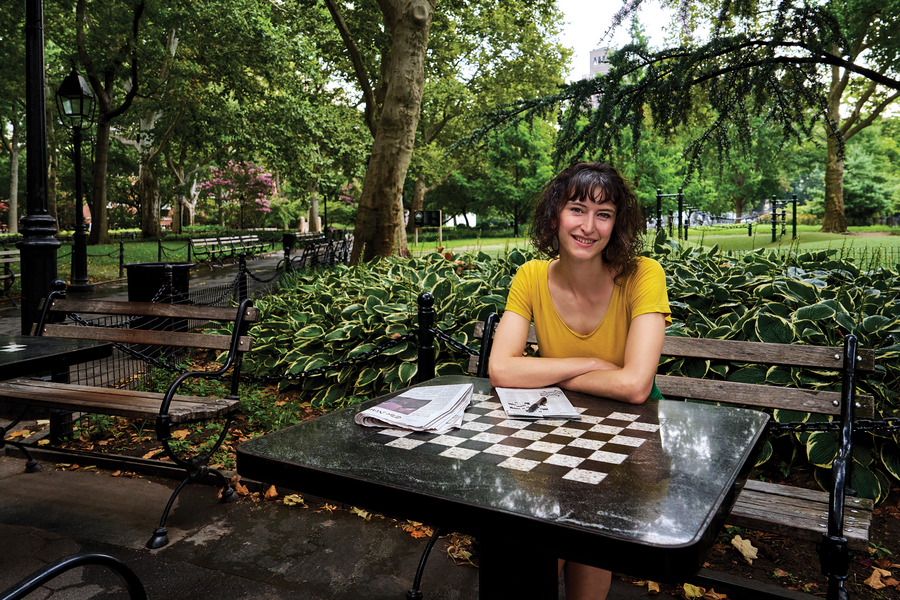Stand in the back of any lecture hall on campus, and you're bound to see at least one student playing Wordle instead of taking notes. Sorry, professors. Blame their divided attention on Zoe Bell, A&S '09, the executive producer of games at The New York Times.
The newspaper has been enabling procrastination since it debuted the Sunday crossword in 1942—a welcome distraction from news of the war—but the games division didn't become the behemoth it is today until after Bell joined the team in 2021.
"When I started, the Games app was called the Crossword app because it only had the crossword puzzle and Spelling Bee," the latter referring to a popular spelling game, Bell recalls. "And if you weren't a subscriber, Spelling Bee wasn't available."
That all changed when The New York Times purchased Wordle, an online word game where players have six chances to guess a five-letter word. During the COVID-19 pandemic, Wordle joined the crossword puzzle in providing comfort to players during a difficult time. And not unlike those pandemic sourdough starters giving rise to loaves of bread, Wordle was the key ingredient in the NYT Games' meteoric growth, renewing interest in older games and paving the way for new ones.
As executive producer, Bell shepherds new games from conception to execution: "Anybody on the team can pitch ideas, and I work with a committee to whittle them down to ideas that … should get prototypes and then even further to games that should go out to the public [for beta testing]. And then we look at the metrics to decide which ones we should add to our portfolio."
Having cut her teeth on game production at Zynga, the company responsible for viral Facebook games FarmVille and FrontierVille, Bell has a sharpened sense for recognizing the elusive quality that elevates games from fun to viral. With Connections, a recent launch where players sort 16 words, most seemingly unrelated, into four categories, she saw something special.
"Prelaunch, the team was playing Connections like crazy," she says. "Once we had daily puzzles set up, my teammates started immediately sharing scores in internal Slack channels. Sometimes playing your own game can get old, so it was great to see such intense internal engagement."
Also see
Connections has exploded in popularity but often proves exasperating (categories can be as maddeningly arcane as "colors with their first letters changed"), prompting flurries of memes on social media expressing a gamut of emotions: admiration, confusion, the desire for vengeance. But Bell isn't offended by the haters.
"We're mostly just excited that people are talking about it," she says. "Even if people are posting on Twitter [now X] with mock frustration, they still were excited enough to post."
Mostly, though, sentiment surrounding NYT Games is positive, with millions of people logging on each day. And whether you're playing a round of Spelling Bee over your morning coffee or struggling through Connections instead of calculus homework, Bell is thrilled to be part of your daily routine.
"It's great to make something that millions of people enjoy," she says. "I find that very rewarding."
Favorite NYT game? "The mini crossword. I try to do it as fast as possible—definitely under a minute, hopefully under 30 seconds. And then it's fun to go to the leaderboards and see how my parents did."
High-profile shout-out: "At one point, Kamala Harris said she plays Wordle."
Did you always want to go into the game industry? "I think I wrote my college essay about wanting to be a writer/actor on a medical drama/comedy. I watched a lot of Scrubs and ER growing up."
Posted in Alumni








